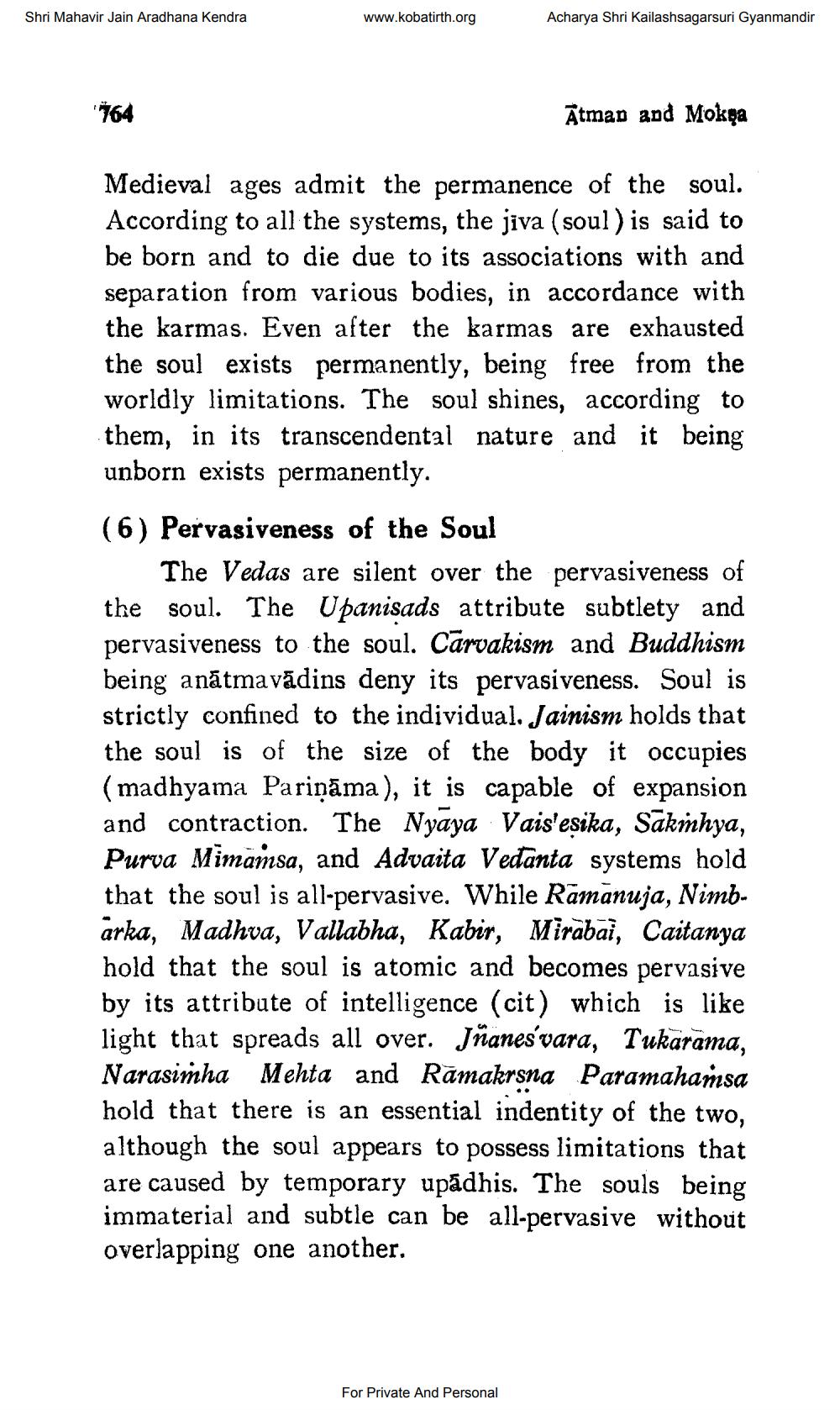________________
Shri Mahavir Jain Aradhana Kendra
www.kobatirth.org
Acharya Shri Kailashsagarsuri Gyanmandir
1764
Ātmap and Mokga
Medieval ages admit the permanence of the soul. According to all the systems, the jiva (soul) is said to be born and to die due to its associations with and separation from various bodies, in accordance with the karmas. Even after the karmas are exhausted the soul exists permanently, being free from the worldly limitations. The soul shines, according to them, in its transcendental nature and it being unborn exists permanently. (6) Pervasiveness of the Soul
The Vedas are silent over the pervasiveness of the soul. The Upanisads attribute subtlety and pervasiveness to the soul. Carvakism and Buddhism being anátmavādins deny its pervasiveness. Soul is strictly confined to the individual. Jainism holds that the soul is of the size of the body it occupies (madhyama Pariņāma), it is capable of expansion and contraction. The Nyaya Vais'esika, Sākmhya, Purva Mimamsa, and Advaita Vedanta systems hold that the soul is all-pervasive. While Rāmānuja, Nimbarka, Madhva, Vallabha, Kabir, Mirabai, Caitanya hold that the soul is atomic and becomes pervasive by its attribute of intelligence (cit) which is like light that spreads all over. Jñanes vara, Tukarama, Narasimha Mehta and Ramakrsna Paramahamsa hold that there is an essential indentity of the two, although the soul appears to possess limitations that are caused by temporary upādhis. The souls being immaterial and subtle can be all-pervasive without overlapping one another.
For Private And Personal




